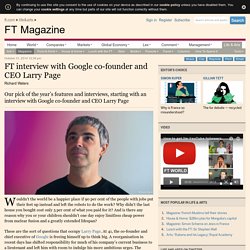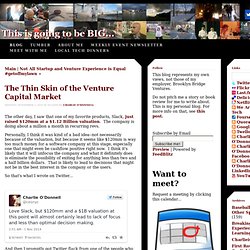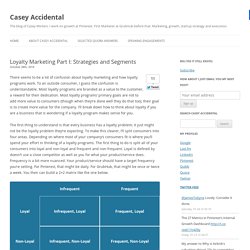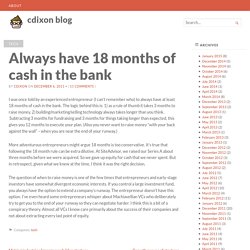

Legitimate Debate, Amazon valuation, User Retention and Being Nice. Interview with Google co-founder and CEO Larry Page. Our pick of the year’s features and interviews, starting with an interview with Google co-founder and CEO Larry Page ©David Black ouldn’t the world be a happier place if 90 per cent of the people with jobs put their feet up instead and left the robots to do the work?

Why didn’t the last house you bought cost only 5 per cent of what you paid for it? And is there any reason why you or your children shouldn’t one day enjoy limitless cheap power from nuclear fusion and a greatly extended lifespan? These are the sort of questions that occupy Larry Page. Looking forward 100 years from now at the possibilities that are opening up, he says: “We could probably solve a lot of the issues we have as humans.” It is a decade on from the first flush of idealism that accompanied its stock market listing, and all Google’s talk of “don’t be evil” and “making the world a better place” has come to sound somewhat quaint. “We’re in a bit of uncharted territory,” he says. ©Steve Jennings/WireImage ©Getty ©Reuters. The Thin Skin of the Venture Capital Market. The other day, I saw that one of my favorite products, Slack, just raised $120mm at a $1.12 Billion valuation.

The company is doing about a million a month in recurring revs. Personally, I think it was kind of a bad idea--not necessarily because of the valuation, but because it seems like $120mm is way too much money for a software company at this stage, especially one that might even be cashflow positive right now. I think it's likely that it will unfocus the company and what it definitely does is eliminate the possibility of exiting for anything less than two and a half billion dollars.
That is likely to lead to decisions that might not be in the best interest in the company or the users. So that's what I wrote on Twitter... And then I promptly got Twitter flack from one of the people who works at one of the company's investors. What was said, who's right, etc., doesn't much matter. "...Here’s the problem. That doesn't mean I have anything against the founder or the investors. Why? "If you build it (revenues), they (profits) will come": Amazon's Field of Dreams!
I have a long standing fascination with Amazon from its inception as a dot-com poster child in the late 1990s to its current standing as online retailer to the world.

I have always liked the company's willingness to challenge established rules on how business should be done and admired Jeff Bezos for being to willing to leap into places where others only tip toe. As an investor, though, I have found the company to be cheap at times in the last 15 years and expensive at others, and the most recent earnings report led me to revisit it, partly to examine whether the market's negative reaction to the most recent earnings report was appropriate and partly because I may learn something.
Loyalty Marketing Part I: Strategies and Segments. There seems to be a lot of confusion about loyalty marketing and how loyalty programs work.

To an outside consumer, I guess the confusion is understandable. Most loyalty programs are branded as a value to the customer, a reward for their dedication. Most loyalty programs’ primary goals are not to add more value to consumers (though when they’re done well they do that too); their goal is to create more value for the company. I’ll break down how to think about loyalty if you are a business that is wondering if a loyalty program makes sense for you. The first thing to understand is that every business has a loyalty problem; it just might not be the loyalty problem they’re expecting.
Each of these four buckets requires a loyalty program targeting different actions by consumers. Frequent, Loyal Action: Keep consumers doing what they’re currently doing Frequent, Non-Loyal Action: Get consumers to migrate usage of competitors to you These opportunities might not exist or be worth the effort. Always have 18 months of cash in the bank. Tech I was once told by an experienced entrepreneur (I can’t remember who) to always have at least 18 months of cash in the bank.

The logic behind this is: 1) as a rule of thumb it takes 3 months to raise money, 2) building/marketing/selling technology always takes longer than you think. Subtracting 3 months for fundraising and 3 months for things taking longer than expected, this gives you 12 months to execute your plan. (Also you never want to raise money “with your back against the wall” – when you are near the end of your runway.) More adventurous entrepreneurs might argue 18 months is too conservative. Be Nice Or Leave. We have a sign like this in our beach house.

We got it in New Orleans many years ago. A Dozen Things I’ve Learned about Business from Bill Gates.